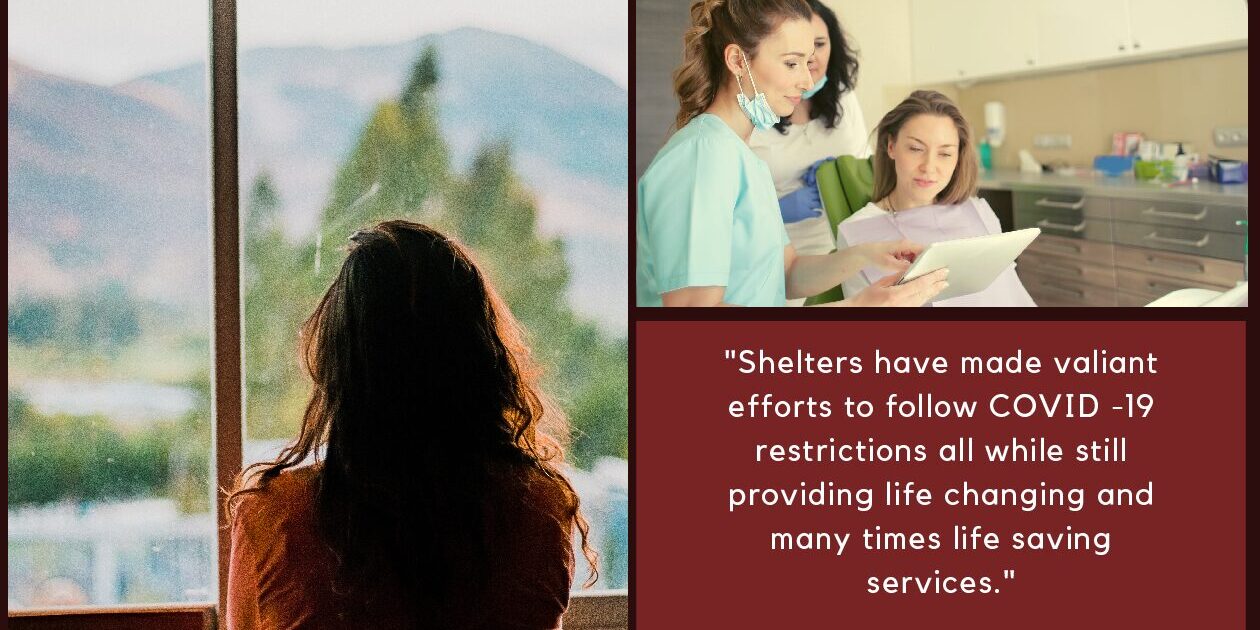Back in March of 2020 when COVID-19 cases surged, stay-at-home orders were put in place, schools closed, workers were furloughed, laid off, or told to work from home, and personal movement became limited as people quarantined in their homes; advocates began expressing concern about a potential increase in intimate partner violence.
Although intended to protect the public and prevent widespread infection, stay-at-home orders left many domestic violence victims trapped inside with their abusers. As states enforced these mandates domestic violence hotlines prepared for an increase in need for shelter, services and crisis calls, but many organizations experienced just the opposite. In fact, in some regions the number of calls dropped by more than 50%, meaning many victims were not connecting with much needed services.
Economic independence is a critical factor in violence prevention. For many people who experience intimate partner violence the financial entanglement with an abusive partner makes it very difficult and complex to leave without an alternative source of economic support. The pandemic has worsened financial entanglement and dependence due to reduced working hours and increased numbers of unemployment; particularly among women of color, immigrants, and workers without a college education. The public health restrictions put in place to combat the spread of the virus have also reduced access to alternative sources of housing, as shelters and hotels have been forced to reduce their capacity or shut down completely. Travel restrictions have also limited victims’ ability to access safe havens like WRC’s shelter. Shelters have made valiant efforts to follow COVID -19 restrictions all while still providing life changing and many times life saving services.
With the closures of schools, child care, and the added hardships of balancing work and children’s education, there has been a massive increase of stress within the home and a rise in child abuse. Children living in violent homes no longer have respite in schools and access to an additional support system. Mandated reporters such as teachers, child care providers, and clinicians have also had fewer interactions with children and their families. Fewer interactions means fewer opportunities to assess, recognize, and report signs of abuse.
Although it is proving to be much more difficult during a pandemic, providers continue to adapt new ways to screen for intimate partner violence and discuss safety planning with their clients. For example, currently clinicians are often the only place victims are able to visit, prompting many of them to take the additional step of normalizing screenings for intimate partner violence by using standardized questions that offer information to all patients, regardless of whether they disclose domestic violence.
The COVID-19 pandemic has put a spotlight on numerous ongoing public health crises, including violence within the home. As state mandates relax and people begin to live a new version of normal; clinicians, public health officials, and policymakers cannot stop in addressing the layers of social inequities in our communities and the ways in which they affect people’s access to care. The pandemic has highlighted just how much urgent work needs to be done to ensure that people who experience abuse can continue to obtain access to support, refuge, and medical care when another public health disaster hits. Since our establishment in 1974, WRC has stood solidly committed to serving the needs of survivors and our community to promote safety, success, and futures from violence. Throughout this crisis, we remain resolute in our mission to “Revive Courage and Rebuild Lives” by operating services and support as best we can in good conscience.
Crisis Text Line (text HOME to 741741)
National Parent Hotline (call 1-855-427-2736)
Childhelp National Child Abuse Hotline (visit https://www.childhelp.org/childhelp-hotline/ or call 1-800-422-4453)
National Domestic Violence Hotline visit http://thehotline/org or call 1-800-799-7233
Futures Without Violence visit https://www.futureswithoutviolence.org/resources-events/get-help/







